
A jug band is a band employing a jug player and a mix of conventional and homemade instruments. These homemade instruments are ordinary objects adapted to or modified for making sound, like the washtub bass, washboard, spoons, bones, stovepipe, jew's harp, and comb and tissue paper. The term jug band is loosely used in referring to ensembles that also incorporate homemade instruments but that are more accurately called skiffle bands, spasm bands, or juke bands because they do not include a jug player.

Gustavus "Gus" Cannon was an American blues musician who helped to popularize jug bands in the 1920s and 1930s. There is uncertainty about his birth year; his tombstone gives the date as 1874.

Reverend Gary Davis, also Blind Gary Davis, was a blues and gospel singer who was also proficient on the banjo, guitar and harmonica. Born in Laurens, South Carolina and blind since infancy, Davis first performed professionally in the Piedmont blues scene of Durham, North Carolina in the 1930s, then converted to Christianity and became a minister. After moving to New York in the 1940s, Davis experienced a career rebirth as part of the American folk music revival that peaked during the 1960s. Davis' most notable recordings include "Samson and Delilah" and "Death Don't Have No Mercy".
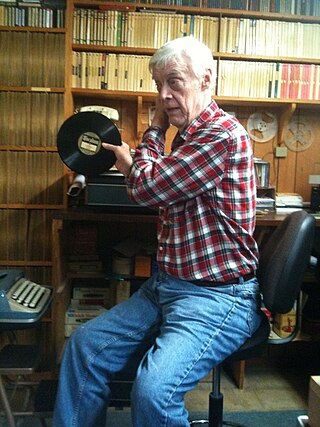
Joseph Edward Bussard Jr. was an American collector of 78-rpm records. He was noted for owning more than 15,000 records, principally from the 1920s and 1930s, at the time of his death.

Henry Thomas was an American country blues singer, songster and musician. Although his recording career, in the late 1920s, was brief, Thomas influenced performers including Bob Dylan, Taj Mahal, the Lovin' Spoonful, the Grateful Dead, and Canned Heat. Often billed as "Ragtime Texas", Thomas's style is an early example of what later became known as Texas blues guitar.

Elizabeth "Libba" Cotten was an American folk and blues musician. She was a self-taught left-handed guitarist who played a guitar strung for a right-handed player, but played it upside down. This position meant that she would play the bass lines with her fingers and the melody with her thumb. Her signature alternating bass style has become known as "Cotten picking". NPR stated "her influence has reverberated through the generations, permeating every genre of music."
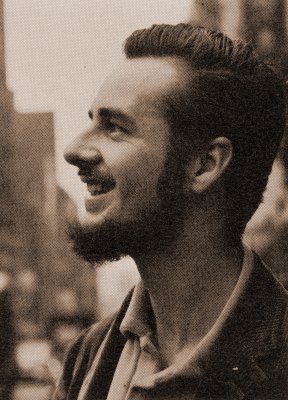
Paul Clayton was an American folksinger and folklorist who was prominent in the folk music revival of the 1950s and 1960s.
"Corrine, Corrina" is a 12-bar country blues song in the AAB form. "Corrine, Corrina" was first recorded by Bo Carter. However, it was not copyrighted until 1932 by Armenter "Bo Carter" Chatmon and his publishers, Mitchell Parish and J. Mayo Williams. The song is familiar for its opening verse:

Stefan Grossman is an American acoustic fingerstyle guitarist and singer, music producer and educator, and co-founder of Kicking Mule records. He is known for his instructional videos and Vestapol line of videos and DVDs.
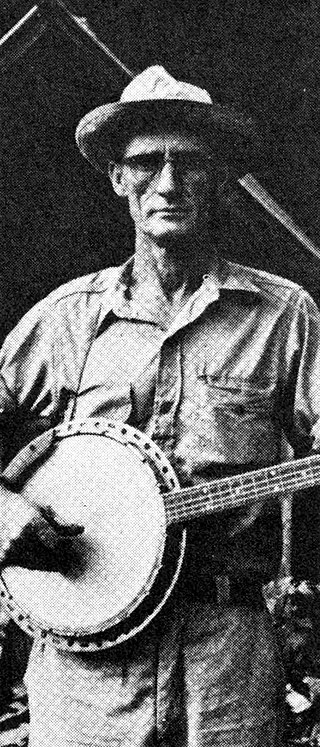
Roscoe Holcomb, was an American singer, banjo player, and guitarist from Daisy, Kentucky. A prominent figure in Appalachian folk music, Holcomb was the inspiration for the term "high, lonesome sound," coined by folklorist and friend John Cohen. The "high lonesome sound" term is now used to describe bluegrass singing, although Holcomb was not, strictly speaking, a bluegrass performer.
Allan Thomas Paley was an American guitarist, banjo and fiddle player. He was best known for his work with the New Lost City Ramblers in the 1950s and 1960s.

"Stealin" is an American blues song from the 1920s. It originated with jug bands, but gained wider popularity after several 1960s contemporary folk musicians recorded it. Although various artists have recorded different verses, the chorus has remained consistent:
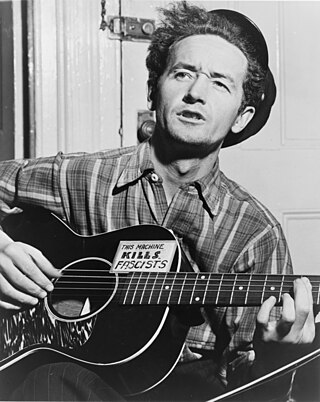
The American folk music revival began during the 1940s and peaked in popularity in the mid-1960s. Its roots went earlier, and performers like Josh White, Burl Ives, Woody Guthrie, Lead Belly, Big Bill Broonzy, Richard Dyer-Bennet, Oscar Brand, Jean Ritchie, John Jacob Niles, Susan Reed, Paul Robeson, Bessie Smith, Ma Rainey and Cisco Houston had enjoyed a limited general popularity in the 1930s and 1940s. The revival brought forward styles of American folk music that had in earlier times contributed to the development of country and western, blues, jazz, and rock and roll music.

Jim Kweskin is an American folk, jazz, and blues musician, most notable as the founder of the Jim Kweskin jug band, also known as Jim Kweskin and the Jug Band, with Fritz Richmond, Geoff Muldaur, Bob Siggins and Bruno Wolfe. The Jug Band was a significant part of the folk and blues revival of the 1960s. Maria Muldaur, formerly with the Even Dozen Jug Band, joined the band in 1963. During the five years they were together, the Jug Band successfully modernized the sounds of pre–World War II rural music.
Charles Henry "Casey" Anderson was an American blues and folk singer, songwriter and guitarist. From 1959 to 1976, he recorded ten albums and some fifteen singles on various labels, most notably Elektra and Atco.
Willard "Ramblin'" Thomas was an American country blues singer, guitarist and songwriter. He is best remembered for his slide guitar playing and for several recordings he made in the late 1920s and early 1930s. Blues scholars seem undecided if his nickname referred to his style of playing or to his itinerant nature. He was the brother of the blues musician Jesse Thomas.
Robert Brown, who performed as Smoky Babe, was an American acoustic blues guitarist and singer, whose recording career was restricted to a couple of recording sessions in the early 1960s. He has been variously described as a Louisiana blues, Piedmont blues and blues revival musician. His most noteworthy recordings are "Going Downtown Boogie" and "Ain't Got No Rabbit Dog".
Andrew Rowan Summers was an American folk singer and player of the Appalachian dulcimer. He is credited with a large role in preserving Appalachian music from extinction. Summers was among the earliest musicians to draw attention to the dulcimer to a wider audience outside the Appalachians, with John Jacob Niles being one of the few earlier.
"All Jolly Fellows that Follow the Plough" or The Ploughman's Song is an English folk song about the working life of horsemen on an English farm in the days before petrol-driven machinery. Variants have been collected from many traditional singers - Cecil Sharp observed that "almost every singer knows it: the bad singers often know but little else". It has been recorded by many singers influenced by the second British folk revival.
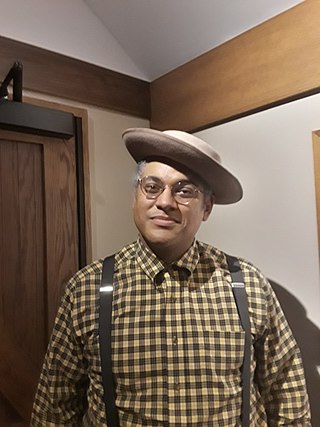
Dominique Flemons is an American old-time music, Piedmont blues, and neotraditional country multi-instrumentalist, singer, and songwriter. He is a proficient player of the banjo, fife, guitar, harmonica, percussion, quills, and rhythm bones. He is known as "The American Songster" as his repertoire of music spans nearly a century of American folklore, ballads, and tunes. He has performed with Mike Seeger, Joe Thompson, Martin Simpson, Boo Hanks, Taj Mahal, Old Crow Medicine Show, Guy Davis, and The Reverend Peyton's Big Damn Band.











